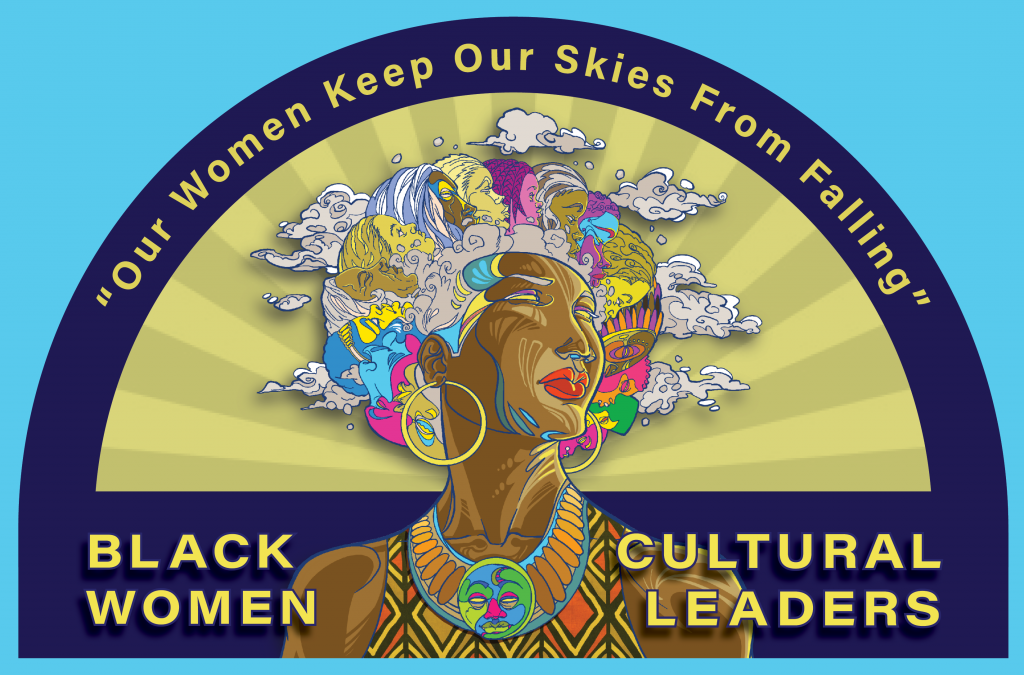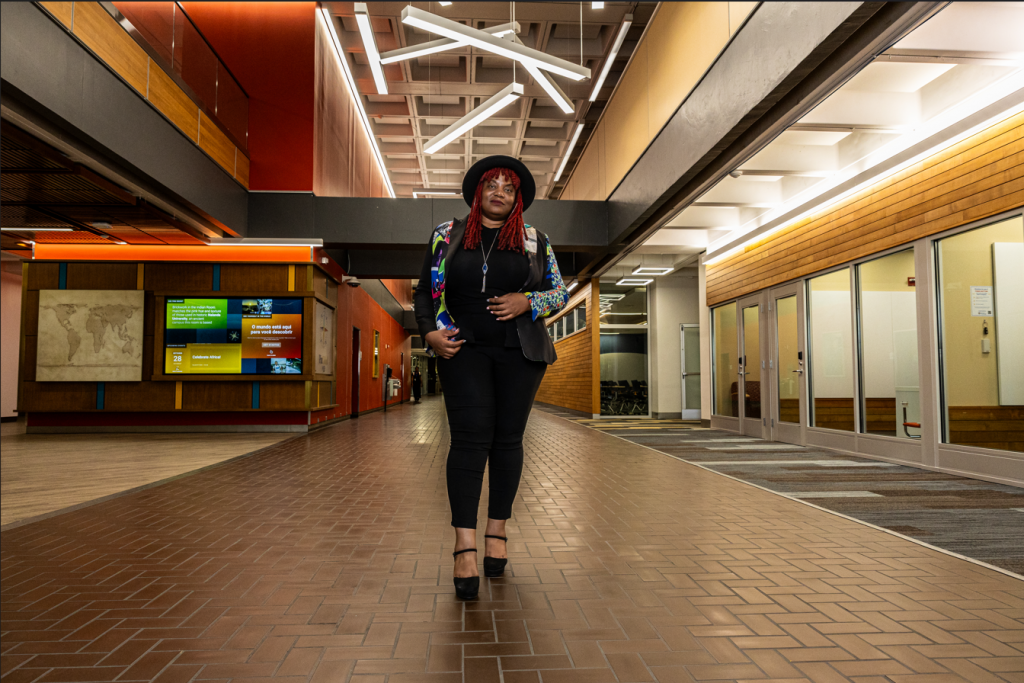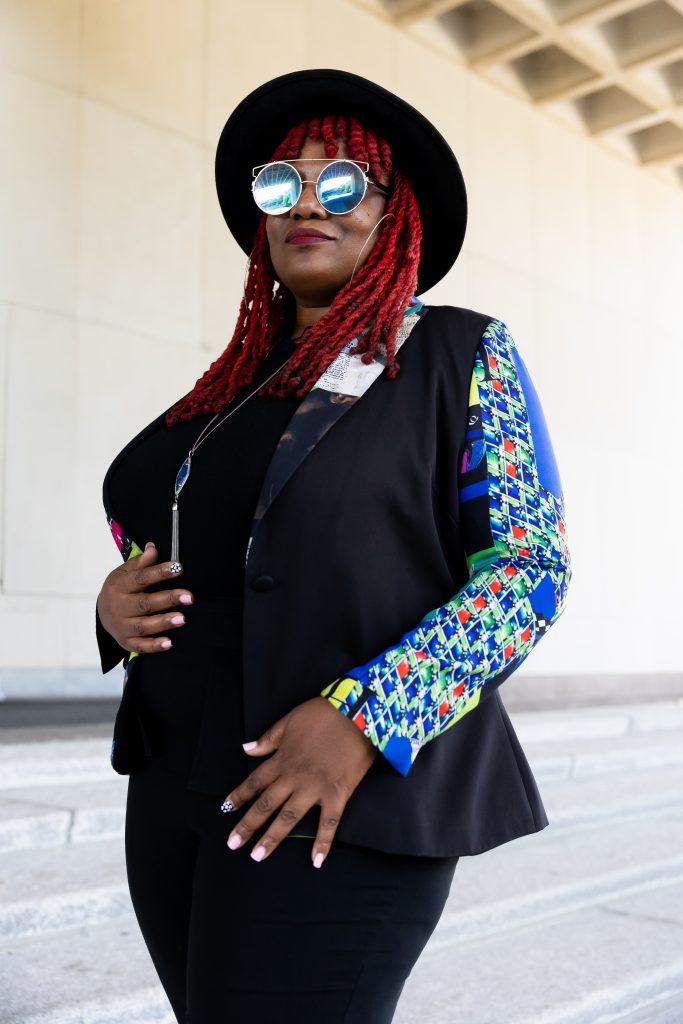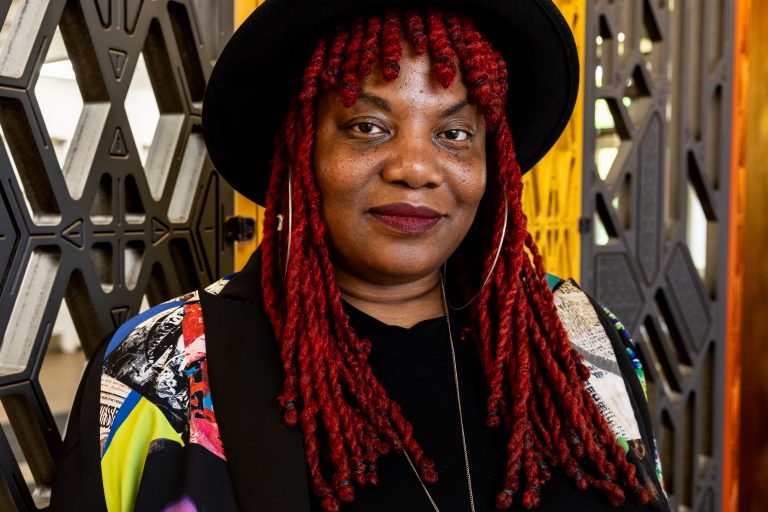The spoken word poet and community educator shares her journey—from budding creative to advocate for teaching artists and positive cultural identity for Black youth through the arts.
By Ervin Dyer, Madison Stokes and Obianuju Okoye
This interview is part of a series on Pittsburgh’s Black Women Cultural Leaders
Medina Jackson is a poet, creative producer, cultural worker, and community educator. Her work crosses educational, cultural and arts spaces in service to and in collaboration with Black youth, families, educators, artists, and cultural workers.
Originally from Berkeley, California, Jackson studied psychology at San Jose State University and then made her way to the University of Pittsburgh, where she earned a master’s degree in social work with an emphasis in Community Organization and Social Administration.
Today she is director of engagement for P.R.I.D.E. (Positive Racial Identity Development in Early Education) in Pitt’s Office of Child Development. Prior to working with the P.R.I.D.E. Project, she held jobs as co-coordinator and artist for the Creative Liberation program at CMU Arts Greenhouse, Program Manager for the Community Empowerment Association, and Community Outreach Coordinator at the University of Pittsburgh Office.
Jackson is also a leader with the grassroots initiative the Black Transformative Arts Network, where she advances teaching artists by engaging them in community programs. In addition, she links local teaching artists with nonprofit organizations and provides resources to both artists and programs.
In 2024, she was recognized as a Social Justice Advocate at the University of Pittsburgh’s K. Leroy Irvis Black History Month Celebration.

Why do you do this work?
I grew up with educational, arts and cultural experiences and events that intersected with various aspects of the Black community and the African diaspora. I learned that schools can be a place of trauma (for me, that was middle school) and empowerment (10th through 12th grade) based on the “container”— the shape of the learning, cultural and social environment. At Berkeley High School, I was introduced to powerful, integrative learning experiences that centered Black life, knowledge of self and culture, student-centered teaching, and dynamic Black educators who were also artists. My commitment to social justice, positive racial and cultural identity, my first poetry class, hip-hop enrichment, and creative education, began there, as a student and budding creative.
The experiences at Berkeley empowered me to seek and manifest solutions to some of the things the Black community has struggled with and continues to face. Reading Assata Shakur: An Autobiography solidified my desire to do community work. Our challenges will not be solved in my lifetime, but I do my best to be engaged in work that is purpose-driven and life-mission aligned based on my learnings and lived experience.
My mother is also a huge influence. She is what I’d call an informal organizer and community mother. Her insistence that I, starting at age 9, write in my diary before playing outside led to my self-reflective journaling practice, which led to me being a poet, emcee, and writer.
In the past year, what aspect of your work are you most proud of?
For the past 20 years, I’ve organized programming, spaces and events that center Black-Africana positive racial and cultural identity and that are creative, educational, fun and arts integrative. In the past year, this has included the P.R.I.D.E. Virtual Speaker Series, the P.R.I.D.E. Pop Up Mini Arts Festivals (East Liberty-Larimer and Homewood), and P.R.I.D.E. Artist Residencies in the role of Director of Engagement.
As a co-facilitator of the Black Transformative Arts Network (BTAN), I’ve organized special events like Sonic Delights (a party centering a variety of Black music during Juneteenth weekend), co-organized the Black Arts Meet-Up, organized The Gathering (a workshop connecting Black emerging youth artists with established Black artists in connection with the Creative Black Futures Showcase), conceptualized and executed Black Art Life Awards, given financial resources to unrecognized Black teaching artists in the region, and the most recent BTAN relaunch introducing the community to our Creatives in Residence.

You’re on your way to your fantasy concert. Who are you going to see?
The lineup: Kendrick Lamar, Sade, Yves Tumor, The Roots, Tall Black Guy, Moses Sumney, Alfa Mist, Rema, Wizkid, Janelle Monae, Beyonce.
What African American female cultural leader inspired you?
Adrienne Maree Brown, author, social justice organizer and embodiment facilitator. Through her writings, particularly her Emergent Strategy series, including Pleasure Activism: The Politics of Feeling Good and her references to Octavia Butler’s Parable of the Sower, Audre Lorde’s Uses of the Erotic as Power, I learned to more consciously and intentionally tap into my creative force—in tandem with what I recognize as community needs, wants and desires for us to flourish. What moves me internally impacts what I manifest in the world. I also learned through her writing and her reference to Toni Cade Bambara that revolution, social change, and liberation work has to be co-created in community and [made] irresistible with experiences of joy and fun. It’s not just about what we are fighting AGAINST; we are building a vision, present and future that we are FOR, and we must affirm that reality in everything that we do. It’s an internal, individual, interpersonal, and collective practice. Adrienne’s writing changed my life.
Is there something special that can be gained from Black women cultural leaders?
When we have the space to and allow ourselves to dream and manifest them, we create revolutionary, transformative, restorative, liberating spaces. We solve problems. We bring solutions. When we have the space to and allow ourselves to lean into our pleasure, joy, and purpose, we open portals of personal and collective healing. We turn lead into gold. We are alchemists…transformers. Like Harriett Tubman, we extend an invitation for folks to come with us. We bring our folks whenever we can. But catch up or get left behind.

How do we empower/inspire the next generation of Black women’s leadership?
When you sit at the table with Black women who bring a vision for the future into the present— that folks can’t quite wrap their mind around—know that she is blessing you, even if you haven’t caught up. It may not come in the package you have been conditioned to deem valuable. She is giving you the present of innovation. She is gifting you with something you haven’t seen when she could have held it for herself…and, sometimes, you have to hold it for yourself because everybody ain’t gonna know what to do with it.
What skills are needed most for the work that you do?
Listening to people’s needs, wants, and desires. The ability to work with others, writing, reading, synthesizing, and sometimes translating information about race and culture. Coordination and organizing skills, dialogue, collaboration, curiosity, creativity, trust, cultural humility, self-awareness, self-reflection, embodiment practices for self-connection and examination of internalized racial oppression, biases, and stereotypes.
Outside of your work, what are your passions?
I’m a long-time poet and spoken word artist (former Hip-Hop artist), vegan culinary enthusiast, writer on a variety of topics (parenting, race, sex, relationships, current events).
What’s next for you?
More creative, cultural events, more poetic performances, and I’d love to learn how to DJ. You may see a couple of businesses and books in the next couple of years and possibly relationship coaching. I’ve only got one life and I want to fulfill my heart’s desires.
Ervin Dyer is a writer who focuses his storytelling on Africana life and culture.
Madison Stokes and Obianuju Okoye are with the Pittsburgh Black Media Federation’s Chris Moore Internship program.


